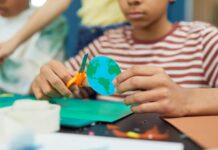
Personal Development Examples in Real Life
Personal development is a journey of self-improvement and growth that individuals embark on to maximize their potential and become the best version of themselves. While the concept may seem abstract, its application in real life can be observed through various examples that highlight the transformative power of intentional self-development.
1. Introduction to Personal Development
Personal development encompasses various aspects of life, including professional growth, emotional well-being, relationships, and physical health. It involves setting goals, acquiring new skills, improving habits, and fostering a positive mindset.
2. Setting Goals for Personal Development
One of the fundamental principles of personal development is setting goals that are Specific, Measurable, Achievable, Relevant, and Time-bound (S.M.A.R.T.). For example, a person aiming for career advancement may set a goal to acquire a new certification within six months.
3. Time Management Skills
Effective time management is essential for personal development. Prioritization techniques such as the Eisenhower Matrix help individuals focus on tasks that are important and urgent, while delegating or eliminating tasks that are neither.
4. Continuous Learning and Skill Enhancement
Personal development involves a commitment to continuous learning and skill enhancement. This could mean attending workshops, taking online courses, or seeking feedback and constructive criticism to improve performance.
5. Emotional Intelligence
Emotional intelligence plays a crucial role in personal development by enabling individuals to understand and manage their emotions effectively. Techniques such as mindfulness meditation can help cultivate emotional resilience and reduce stress.
6. Building Resilience
Resilience is the ability to bounce back from adversity and overcome challenges. Examples of building resilience include reframing setbacks as opportunities for growth, seeking support from mentors or peers, and developing a positive outlook on life.
7. Healthy Lifestyle Habits
Physical health is interconnected with personal development. Engaging in regular exercise, maintaining a balanced diet, and getting enough sleep are examples of healthy lifestyle habits that contribute to overall well-being.
8. Effective Communication Skills
Effective communication is essential for success in both personal and professional life. Examples of effective communication skills include active listening, assertiveness, and the ability to express thoughts and feelings clearly.
9. Networking and Relationship Building
Building meaningful connections with others is vital for personal development. This could involve attending networking events, joining professional associations, or simply reaching out to new people with shared interests.
10. Adaptability and Flexibility
In today’s rapidly changing world, adaptability is a valuable skill for personal development. Examples of adaptability include embracing change, learning new technologies, and adjusting to unforeseen circumstances.
11. Self-Reflection and Self-Awareness
Self-reflection is a critical component of personal development. Examples of self-reflection practices include journaling, meditation, and seeking feedback from others to gain insight into one’s strengths and areas for improvement.
12. Taking Risks and Stepping Out of Comfort Zones
Personal growth often requires taking risks and stepping out of comfort zones. Examples include pursuing new opportunities, accepting challenges, and confronting fears of failure or rejection.
13. Celebrating Achievements
Acknowledging and celebrating achievements is essential for maintaining motivation and momentum in personal development. This could involve rewarding oneself for reaching milestones, sharing successes with others, or simply expressing gratitude for progress made.
14. Maintaining Work-Life Balance
Achieving a balance between work and personal life is crucial for overall well-being. Setting boundaries, prioritizing self-care, and allocating time for leisure activities are examples of maintaining work-life balance.
15. Conclusion
Personal development is a continuous journey that requires commitment, effort, and self-awareness. By setting goals, acquiring new skills, fostering healthy habits, and cultivating resilience, individuals can unlock their full potential and lead fulfilling lives.
Ethical Issues of Personality Tests in the Workplace
Benefits of Personality Tests in the Workplace
Disadvantages of Personality Tests
Advantages and Disadvantages of Personality Development
FAQs
- What are some simple habits that contribute to personal development?
- Simple habits such as reading regularly, practicing gratitude, and setting aside time for self-reflection can contribute significantly to personal development.
- How can I stay motivated on my personal development journey?
- Staying motivated requires setting realistic goals, tracking progress, seeking support from others, and celebrating achievements along the way.
- Is personal development a one-time event, or is it a lifelong process?
- Personal development is a lifelong process that involves continuous learning, growth, and adaptation to new circumstances and challenges.
- What role does self-awareness play in personal development?
- Self-awareness is crucial for personal development as it enables individuals to understand their strengths, weaknesses, values, and goals, thereby guiding their actions and decisions.
- How can I incorporate personal development into my daily routine?
- Incorporating personal development into your daily routine can be as simple as dedicating a few minutes each day to meditation, journaling, or learning something new.






















